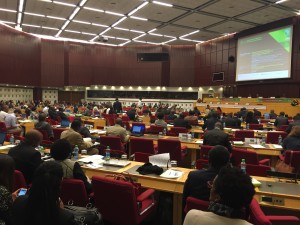- Have any questions?
- +254 718 619298
- thinking@developlocal.org
We Are Here.
23rd March 2015Agenda 2063 is Africa’s pre-eminent framework for progress over the next 50 years. It will be implemented through a series of medium term plans with the long term development plans of Regional Economic Communities (RECs) and member states progressively more aligned with the continental framework.
Like the global post-2015 agenda the aspiration for Agenda 2063 is a transformative and ambitious framework that enables African countries to achieve a number of objectives including, among many others;
- Eradicating poverty in one generation and building shared prosperity through social and economic transformation of the continent.
- Growing Africa’s collective GDP to levels proportionate to her share of the world’s population and natural resource endowments.
- By 2020 all guns will be silent.
In their report, the High Level Panel of Eminent Persons on the Post 2015 Agenda called for a “data revolution for sustainable development, with a new international initiative to improve the quality of statistics and information available to citizens.”. The panel called on stakeholders to “actively take advantage of new technology, crowd sourcing, and improved connectivity to empower people with information on the progress towards the targets”.
This data revolution, although mentioned in the context of the post-2015 agenda will not exclusively serve it but the broader development agenda as well. This provides Africa with an opportunity to leverage the momentum and interest in new sources of data, greater human capital in statistics and improvements in technology to do a better job at measuring progress towards our goals.
But all this won’t simply fall out of the sky. It will require investment and this is where I see three challenges, among many others, that pose an existential risk to the achievement of Agenda 2063 or even the post-2015 Sustainable Development Goals in Africa.
Financing Africa’s Development Priorities
- Overseas Development Assistance has played a critical role in helping developing countries move the needle towards progress in the period after 2002 until now. As was noted in the outcome document of the Doha Declaration on Financing for Development, there was “substantial increase in public and private flows since 2002, which has contributed to higher economic growth in most developing countries and a reduction in global poverty rates.”
The objectives of the Monterrey consensus, unfortunately, are yet to be fully realised with developed countries not meeting their obligations to date. While I am certain a costing exercise will be carried out to determine how much every country will need to spend in order to play its part in Agenda 2063, I am not sure the extent to which no-strings-attached ODA will be available for it. If elements of the Agenda 2063 first 10 year plan don’t fit neatly into the final post-2015 agenda will developed countries still meet their obligations without giving conditions that would slow down progress? Over reliance on ODA by developing countries in Africa will most certainly pose a threat to Agenda 2063 in the long term. - And there’s the big issue of illicit financial flows. Africa is losing, according to the AU High Level Panel on Illicit Financial Flows from Africa Report, $50B with some estimating this to be growing at just over 9% a year. Tackling this problem is not just a technical financial industry one but one that requires the political will to take the fight to the highest levels of multilateral diplomacy where these issues become hooks onto which strings to development assistance can be attached. This fight may play out during the intergovernmental negotiations in the run up to the 3rd International Conference on Financing for Development in Addis Ababa, Ethiopia this July. It is also bound to play out in diplomatic “skirmishes” around the development of an official definition for ‘Illicit Financial Flows”, an outcome of which could be negative impact on large western multinationals operating on the continent.
- Financing development requires the mobilisation of domestic resources and in Africa, our aspiration as articulated in Agenda 2063, is “Africa shall be an integrated, united, sovereign, independent, confident and self-reliant continent“. If resources that are mobilised only to make their way into numbered off-shore accounts or are misappropriated to support the extravagant tastes of leaders rather than in support of development progress, this agenda will remain a vision. Sound public finance management including transparency, accountability and strong oversight institutions backed by a conducive governance environment will be essential to safeguarding resources and ensuring progress towards self-reliance. While illicit financial flows pose a direct and sometimes external threat to successful domestic resource mobilisation, poor public finance management, dysfunctional tax regimes and lack of transparency are purely internal to the country and can only be blamed on us.
The path to Africa’s financial self-reliance is dogged by challenges including the resource curse, terrorism and intra-African trade barriers. However, it is our path to walk and it is our path to fix. Only Africa can.


